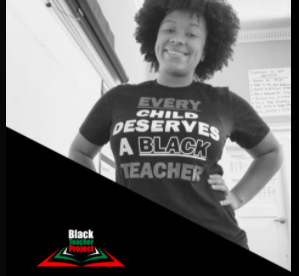Lesson 41 –
Hebrews 4:12-16 NRSV
12 Indeed, the word of God is living and active, sharper than any two-edged sword, piercing until it divides soul from spirit, joints from marrow; it is able to judge the thoughts and intentions of the heart. 13 And before him no creature is hidden, but all are naked and laid bare to the eyes of the one to whom we must render an account.
14 Since, then, we have a great high priest who has passed through the heavens, Jesus, the Son of God, let us hold fast to our confession. 15 For we do not have a high priest who is unable to sympathize with our weaknesses, but we have one who in every respect has been tested as we are, yet without sin. 16 Let us therefore approach the throne of grace with boldness, so that we may receive mercy and find grace to help in time of need.
Background
The author of this letter is unknown. Earlier in this chapter, the writer speaks about the end goal of getting rest promised in God. The writer also references significant figures like David and Joshua. The recipients of this letter would have recognized these figures. The chapter speaks about rest and Sabbath often. In your own devotional period, reread this chapter in its entirety. What does Sabbath mean to you?
Today’s lesson will focus on connecting with Christ.
Read the scripture out loud together. What’s happening during this passage?
The writer is making a very pointed argument. The word is both “living and active.” It is sharper than any “two-edged sword.” It divides soul from spirit and joints from marrow. It’s a precise instrument. It’s one that helps people discern thoughts and intentions.
Jesus is the “great high priest.” But the writer delights in the fact that this priest can empathize with us. As such, it is up to all of us to approach the “throne of grace” with boldness so that we can make our needs known before God.
How does “The Word” function in this passage?
This is not the only time the word is described as a sword. In Ephesians, Paul describes the word of God as “the sword of the spirit.” The writer of Hebrews is tapping into a similar theme. For this writer, the word of God is not a static or stagnant book. It still lives. It has the ability to help people discern thoughts and intentions of the heart.
No creature is hidden, but all are naked and laid bare…
What’s important for us in the 21st century to remember is that the Bible did not exist at this time. The Bible that we read from is a much later development. The writer is not speaking about the Word as in “The Bible.” The Word, or Logos in Greek, is the same word used to describe Jesus in John.
In the beginning was the Word…
Other uses of the word logos include “sayings of God,” “prophecy,” and “teaching.”
What does the writer believe about Christ?
Christ is characterized as someone who is relatable. Christ is not a “high priest who is unable to sympathize with our weaknesses.” Instead, Christ has been tested in “every respect” and yet still is without sin. Christ knows what it’s like to be tried and tested.
This is to be contrasted with out of touch leaders who pretend they do not know what it’s like to have temptation. We are not connecting to someone who does not know what it is like to be human. We are connecting with Jesus who lived life on Earth as a human. If anyone can understand why we struggle with our words and actions aligning, it’s Jesus.
What questions do you still have of this scripture? How will you commit to journeying with this text this week?
 CONNECTION TO TODAY’S WORLD
CONNECTION TO TODAY’S WORLD
The Black Teacher Project is a program that develops Black teachers with the expressed aim of “leading and reimagining schools as communities of liberating learning.” Their vision is that “every student will benefit from the diversity, excellence, and leadership of an empowered Black teaching force.”
Citing research from multiple studies, the Black Teacher Project is grounded in the truth that Black teachers are more than just relatable to their students.
1. Black teachers have higher expectations for Black students.
2. All students prefer Black and Latinx teachers.
3. Non-Black students benefit from having Black teachers by having a role model across racial differences.
The goal of the organization is to create peer support for Black teachers, address implicit bias and help schools/teaching programs retain the teachers they have. The program works on multiple levels. It gives Black teachers a support system and it supports students in having strong Black Teachers. One teacher in the Leadership Institute said, “I feel supported and whole. I have a sense of community that will make it easier for me to thrive as a teacher next school year.”
Journal: Have you ever felt like you were confessing something personal to someone who could not empathize with you? How did that make you feel?
Closing: Listen to “No Not One,” sung by Psalms of Praise
1 There’s not a friend like the lowly Jesus–
No, not one! no, not one!
None else could heal all our soul’s diseases–
No, not one! no, not one!
Refrain:
Jesus knows all about our struggles,
He will guide till the day is done;
There’s not a friend like the lowly Jesus–
No, not one! no, not one!
2 No friend like Him is so high and holy–
No, not one! no, not one!
And yet no friend is so meek and lowly–
No, not one! no, not one!
3 There’s not an hour that He is not near us –
No, not one! no, not one!
No night so [cold] but His love can cheer us–
No, not one! no, not one!
4 Was e’er a gift like the Savior given?
No, not one! no, not one!
Will He refuse us a home in heaven?
No, not one! no, not one!
Prayer:
Dear God, You are the God who dwells among us. You sent your Son to feel with us. Jesus knows all about our struggles, and you’ll guide us until the end of the day. When we are in need of someone to empathize with us, shower us with friends like Jesus. In Jesus’ name we pray, Amen.
WORKS CITED
https://www.blackteacherproject.org/vision
https://www.blueletterbible.org/Comm/macarthur_john/bible-introductions/hebrews-intro.cfm





